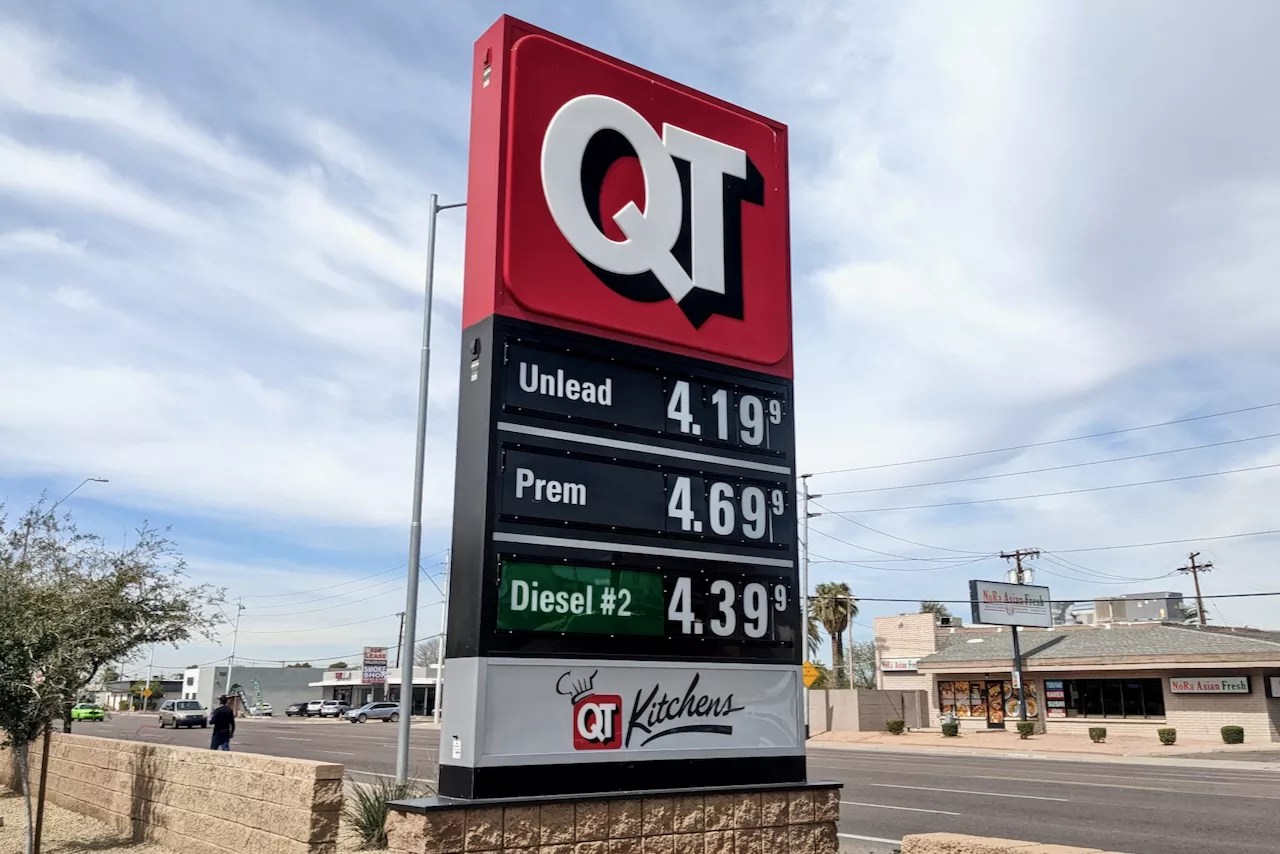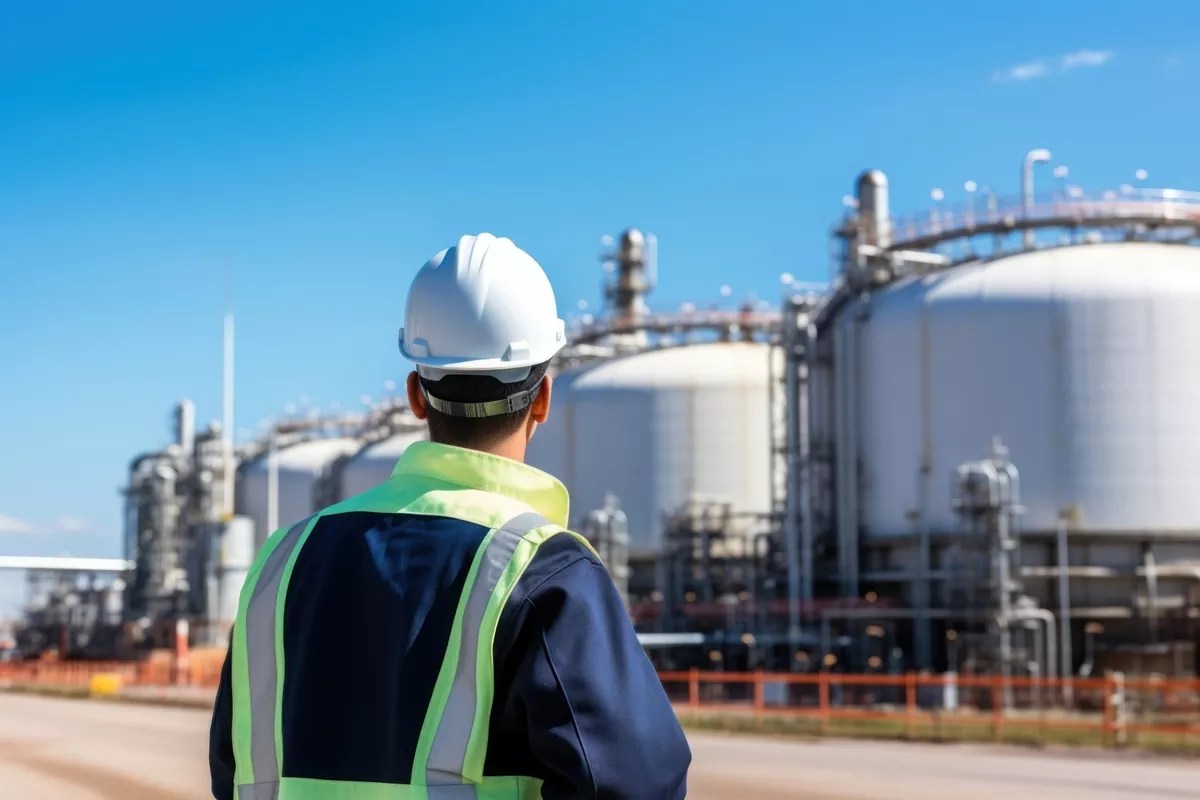
Matt Hennie

Audio By Carbonatix
Several Arizona legislators hoped changing the blend of gasoline sold in the Valley would lower prices. They left a hearing at the State Capitol on Monday with little expert opinion to support the idea.
Phoenix drivers and businesses have paid well above the national average for gasoline this year, with prices spiking in two waves over the summer, according to data from the U.S. Bureau of Labor Statistics. In March, gas prices in Arizona were the fifth-highest in the nation. But the average price for unleaded regular gas peaked at $4.94 in May before dropping and leveling out at $4.76 in September. On Oct. 12, the national average was $3.64, said AAA.
After seeing gas prices rise, legislators have shown interest in altering a 1997 Arizona law that requires a specific fuel blend called “cleaner burning gasoline,” or CBG, to be sold in the Valley to reduce pollution. The blend is only used in and around Phoenix, with states such as California using different clean-burning types of gasoline.
But in a hearing for the Joint Legislative Ad Hoc Study Committee on Air Quality and Energy, fuels specialist Gordon Schremp said changing the blend of gasoline used in metro Phoenix would do little to bring prices down. Schremp said the greater issue is that the three pipelines that supply fuel to Arizona are at, or near, capacity. The Western States Petroleum Association, a trade group for petroleum companies, said it had Schremp testify at the hearing.
“When you have a pipeline constraint situation, which I believe Arizona currently has, changing the gasoline recipe does not remove your constraint in the pipeline system,” Schremp said. He called the “unusually large price spikes” from spring and late summer “a manifestation of this constrained system.”
Schremp did note that production costs for the CBG blend are about 10-15 cents higher per gallon than they are for standard gasoline. But he and Michelle Wilson, a regulatory compliance administrator with the Weights and Measures Services Division of the Arizona Department of Agriculture, emphasized that changing the fuel standards for Phoenix likely would take years. The 1997 law is part of the state’s implementation plan for the Clean Air Act, which has to be approved by the U.S. Environmental Protection Agency.
Even if Arizona requested to revise its fuel formula, it would have to demonstrate to the EPA that the change would positively impact air quality – or have no impact at all.

Valley drivers have faced fuel costs well above the national average for much of 2023.
Federal Reserve Bank of St. Louis
Did waivers offer temporary solution?
While long-term changes to Arizona’s fuel policy could take significant time, a temporary tool is available to the state.
During fuel supply emergencies, the state can submit a waiver to the EPA requesting specific requirements be lifted. According to Wilson, the circumstances of the waiver request must be unexpected, such as a natural disaster affecting a refinery. High prices are not a valid reason for the EPA to grant a waiver, she said.
Gov. Katie Hobbs did not file a waiver after WSPA and oil companies urged her to do so in March. The EPA made it clear the agency would not approve a waiver, according to Christian Slater, Hobbs’ communications director.
“In the spring, the Hobbs administration worked behind the scenes for weeks to secure a waiver,” Slater said in a statement to Phoenix New Times. “Unfortunately, the EPA consistently said one would not be granted despite expressed concerns during weekly meetings.”
However, the EPA did grant the Hobbs administration a waiver in August and a two-day waiver in September following unplanned delays on a pipeline bringing CBG from California.
State Rep. Austin Smith, a Republican from Wittmann who serves on the air quality and energy committee, continually asked Wilson questions about her division’s interactions with the Hobbs administration and whether it failed to act when oil companies requested a waiver.
Wilson provided little commentary on her agency’s meetings with the Hobbs administration.
Sandy Bahr, local chapter director of the environmental advocacy organization Sierra Club, told New Times that oil and gas interests, especially the WSPA, are trying to remain front and center in the legislative debate and assert their political influence.
Bahr said the oil association strongly advocated in 2020 for changing the fuel blend used in the Valley. But even if the industry isn’t pushing for that now, she expects to see legislation from Republicans trying to change it for “optics.”
“My guess is they’ll try to send something up to her (Gov. Hobbs) to force her hand, and when she vetoes it, they’ll use it as a talking point,” Bahr said.

In April, oil companies supplying gas to Arizona warned that weeks-long shutdowns of refineries in New Mexico and Texas in the spring would cut the amount of CBG reaching Arizona by more than half.
Rawpixel
Pipeline supply issues for Phoenix
There are no refineries in Arizona. As such, all of Phoenix’s CBG comes from the Los Angeles area, New Mexico and Texas. Oil companies supplying gasoline to Arizona warned that weeks-long shutdowns of refineries in New Mexico and Texas in the spring would cut the amount of CBG reaching Arizona by more than half. An alternative option is to use trucks to carry gasoline to retailers, which negates the pollution reduction measures of using the cleaner burning gas.
Schremp and WSPA President Catherine Reheis-Boyd see Arizona’s lack of refineries and pipelines as a major factor limiting the supply.
“This is extremely complex. It’s not just the state of Arizona, it’s how the state of Arizona interacts with the supply chain of other states,” Reheis-Boyd said.
Schremp added that California policymakers are considering a limit on fuel exports to Arizona, which would exacerbate supply issues.
Bahr pointed out that although Arizona doesn’t have any oil production infrastructure, a long-term transition away from fossil fuels toward renewable energy could help solve the state’s gas price woes. Most of Arizona’s electrical power is produced in-state, Bahr added.
“You don’t have to worry about the pipelines then,” Bahr said.